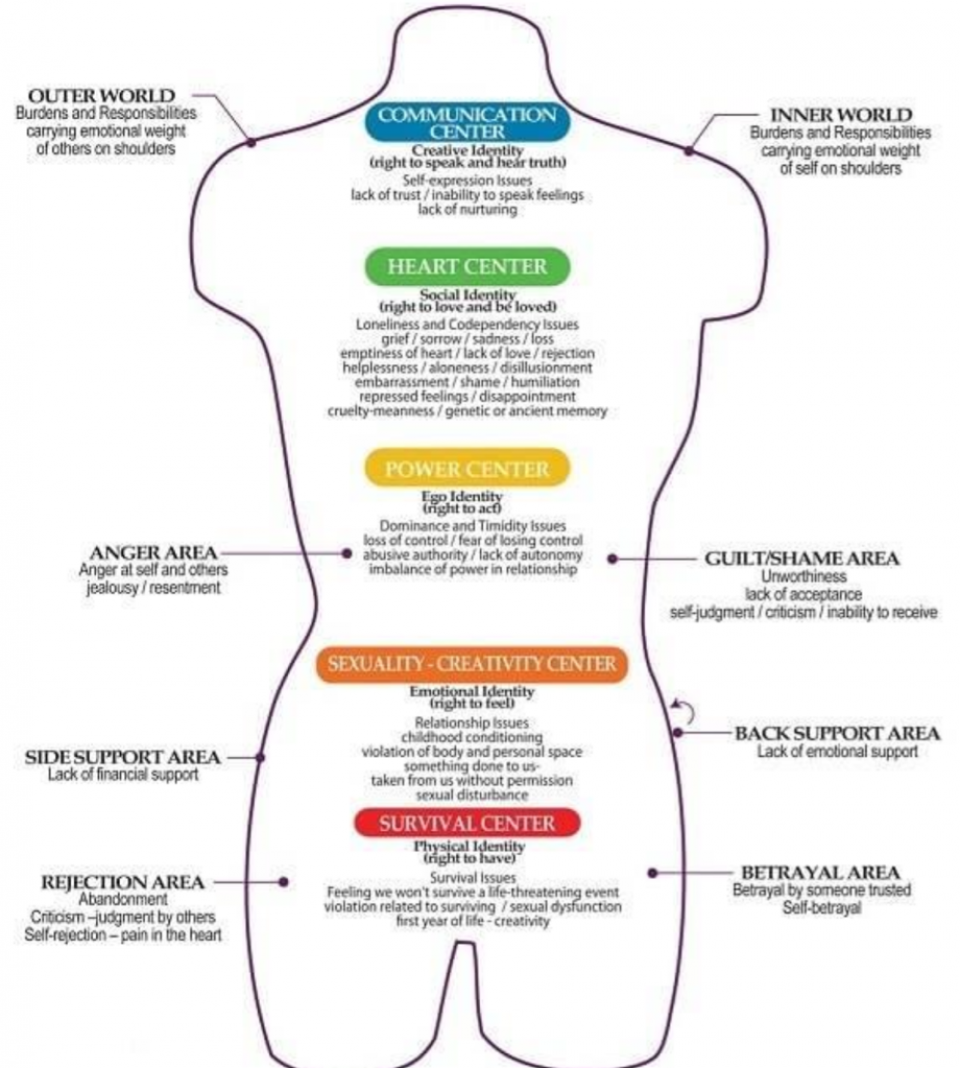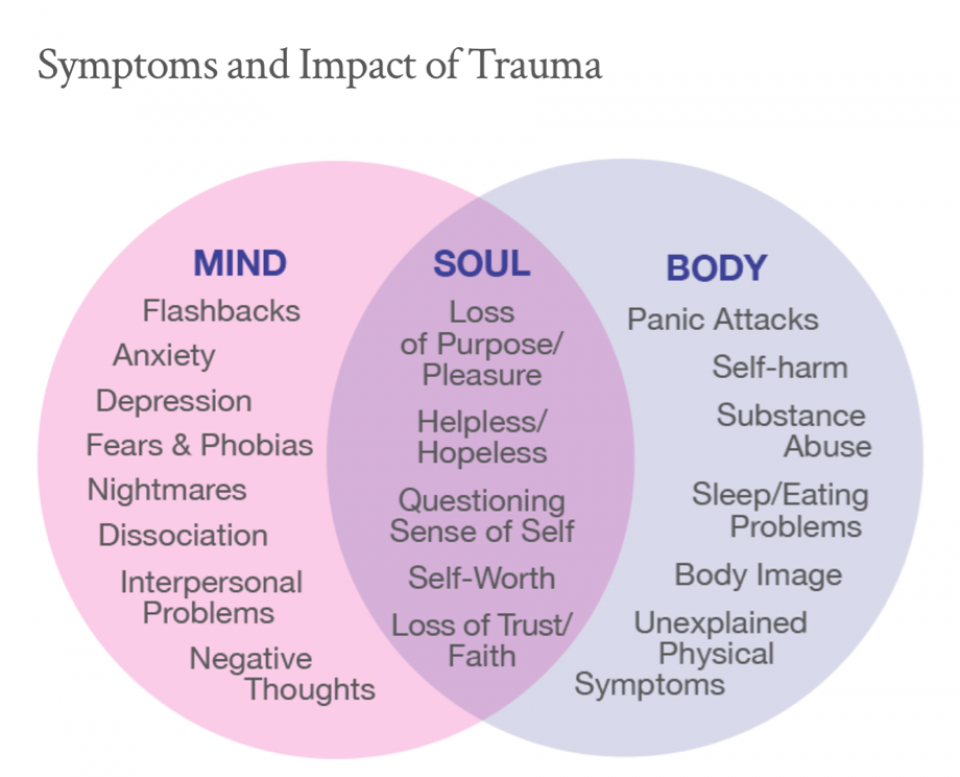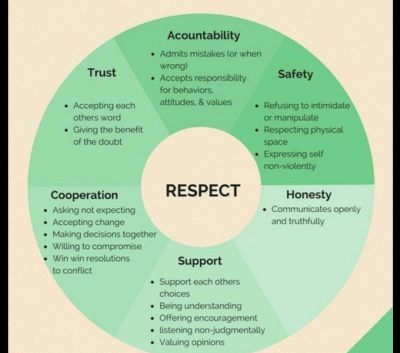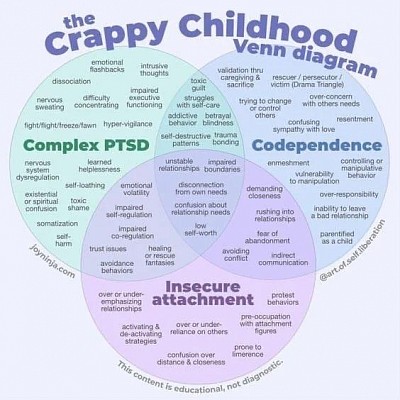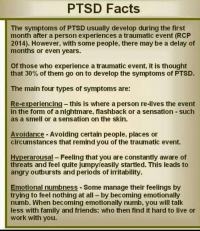The aftermath. Symptoms of abuses and trauma.
Symptoms of Trauma
Trauma in the body can look like...
Quick, shallow breathing • Unexplained pain (Chest, Muscle tension
throat, stomach etc.)
• Hypervigilance
• Spontaneous crying/
• Uncomfortable bowel
quick to cry
movements
• Loss of appetite
• Headaches/Migraines
• Binge eating (comfort
• Increased level of stress food) hormones in the body
• Self-Harm
• Difficulty returning to
• Selective Mutism
baselines levels
• Excessive sweating
Insomnia/Disturbed sleep • Increased heart Skin Picking
rate/blood pressure
anic Attacks
• Heaviness
Hyper-reactivity
• Lack of energy
Once your natural survival response system has kicked in, you become a completely different person.
Abuse and trauma can lead to codependency and other long term insecurities. Learning your reactivity processes, helps us bring you into a space where your relationships with yourself and others will be healthy and safe.
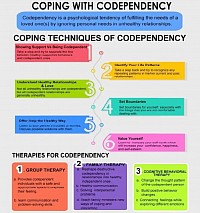
In the aftermath of abuse and trauma there are numerous triggers, attachment styles, over reactivity responses.
Why do victims become codependent?
Personal awareness; is the awakening that leads to a healthy functioning future!
PTSD - a natural outcome of abuse and trauma.
Risk Factors For Developing PTSD
Multiple traumas Greater exposure to the trauma Additional post event stressors (eg. dislocation, loss/separation from caregivers) Caregivers unable to meet child's needs due to own distress/psychological problems Family psychiatric history Preexisting psychiatric disorder .
Positive ways of coping with PTSD
Learn about trauma and PTSD
Practice relaxation techniques
Spend time with positive people
Avoid alcohol and drugs
Join a PTSD support group
What is a
trauma trigger?
A trauma trigger is something that causes your mind to recall a traumatic event or series of traumatic events; these triggers are often tied to the five senses - something you saw, heard, smelled, tasted or touched.

